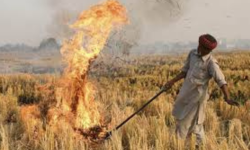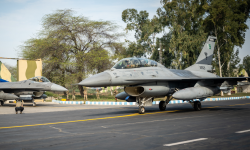
Prime Minister Shehbaz Sharif arrived in Riyadh, Saudi Arabia, on Sunday to participate in the Arab-Islamic Summit. Upon his arrival at Riyadh’s Royal Airport Terminal, he was greeted by Prince Muhammad bin Abdul Rahman bin Abdulaziz, the Deputy Governor of Riyadh, along with Pakistan’s Ambassador to Saudi Arabia and senior diplomatic officials.
Accompanying the Prime Minister were Federal Minister for Information and Broadcasting Attaullah Tarar and Special Assistant to the Prime Minister Tariq Fatemi.
Focus on Palestinian Issue
In a message on social media platform X (formerly Twitter), Prime Minister Shehbaz Sharif expressed his commitment to joining fellow Muslim leaders at the Joint Arab Islamic Summit. The summit is primarily convened to address the rapidly escalating situation in Gaza and discuss solutions for the region. Prime Minister Shehbaz emphasized the importance of speaking with a united voice for the rights of the Palestinian people and reaffirmed Pakistan’s long-standing support for regional peace and stability.
Urgent Call for Ceasefire in Gaza
PM Shehbaz Sharif is expected to call for an immediate and unconditional ceasefire to end the ongoing violence in Gaza. The escalation of violence in Gaza has led to international outrage, and Pakistan continues to call for the halting of what it terms as “genocide” in the region. According to a government spokesperson, Pakistan’s position on Palestine remains firm, and the country will continue to demand an end to the violence in Gaza.
Meetings with OIC and Arab League Leaders
During his visit, Prime Minister Shehbaz Sharif will hold discussions with leaders from the Organization of Islamic Cooperation (OIC) and the Arab League, who are also gathered in Riyadh for the summit. The summit provides a crucial platform for Muslim nations to discuss not only the Palestinian issue but also other regional matters. The Prime Minister’s participation further underscores Pakistan’s commitment to supporting Palestine and promoting peace in the Middle East.
Strengthening Pakistan-Saudi Arabia Relations
In addition to addressing the Palestinian crisis, Prime Minister Shehbaz Sharif is expected to highlight the importance of Pakistan’s growing economic and diplomatic ties with Saudi Arabia. In his statement, he mentioned ongoing discussions between Pakistan and Saudi Arabia on enhancing cooperation in various sectors, including solar energy, mining, agriculture, and investment. These efforts aim to strengthen bilateral relations and promote economic growth for both countries.
Military Cooperation and Regional Security
Prime Minister Shehbaz Sharif’s visit follows several meetings between Pakistan’s military leadership and Saudi officials. Notably, Army Chief General Asim Munir had a series of discussions with Saudi Crown Prince Mohammed bin Salman, focusing on regional security, defense cooperation, and ways to address growing geopolitical tensions. These talks are designed to bolster military collaboration and improve regional stability.
Pakistan’s Longstanding Commitment to Palestine
PM Shehbaz Sharif’s participation in the Arab-Islamic Summit underscores Pakistan’s ongoing commitment to the Palestinian cause. The country has consistently called for the rights of Palestinians to be recognized and for a peaceful resolution to the conflict. As the Gaza crisis continues, Pakistan remains steadfast in advocating for an end to the violence and in supporting international efforts to bring peace to the region.
Conclusion
PM Shehbaz Sharif’s visit to Riyadh and his attendance at the Arab-Islamic Summit reflect Pakistan’s dedication to addressing the humanitarian crisis in Gaza, promoting regional peace, and strengthening ties with Saudi Arabia. As one of the key players in Middle Eastern diplomacy, Pakistan continues to emphasize the importance of unity among Muslim nations to address global and regional challenges.









